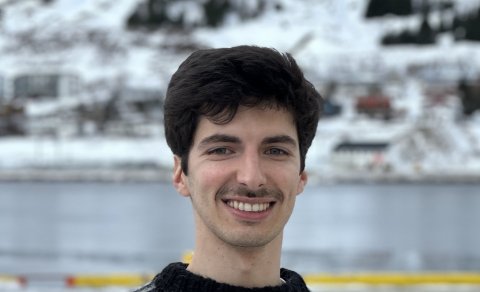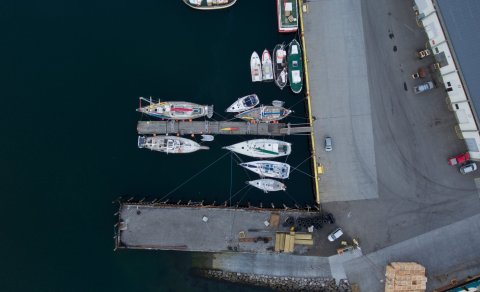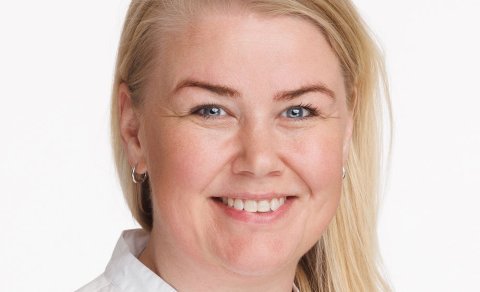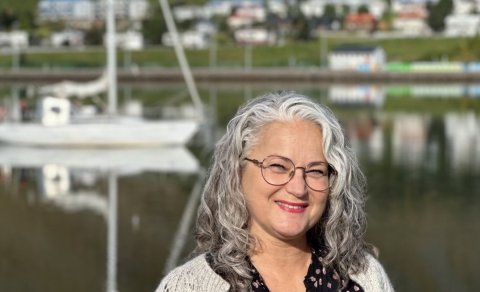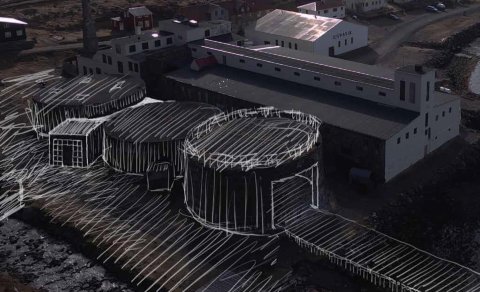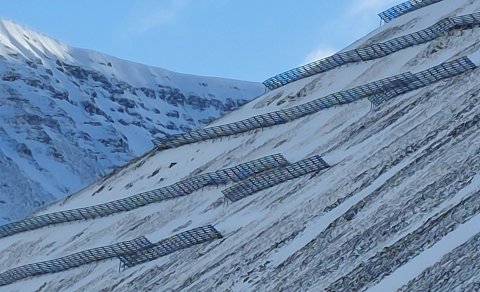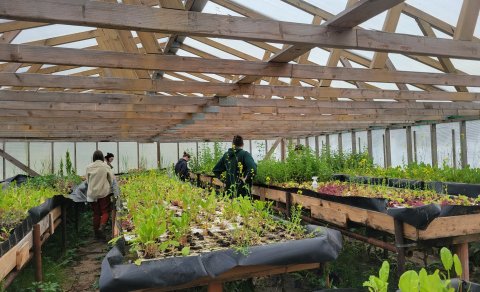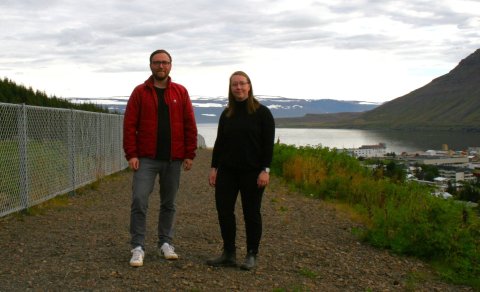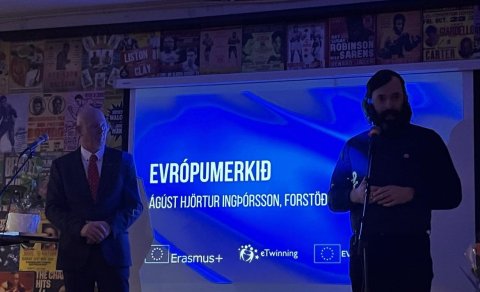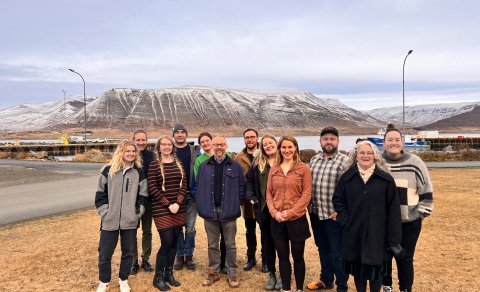09.03.2024
UW has a visitor this week from a researcher conducting field work in Ísafjörður for his master’s thesis. Matei Filip Popescu is a 26-year-old master’s student in the Environment and Natural Resources program at the University of Iceland. He has been staying at UW, where he uses the remote working office to conduct interviews with locals. His thesis adviser is Dr. David Cook, who is an instructor at UW and adjunct lecturer at the University of Iceland. It is through his connection to UW that Matei came here to us. His master’s thesis is on the social acceptance of green ammonia for maritime uses in Ísafjörður. He is conducting interviews with local institutions, businesses, and members of the community to understand and consider a broad spectrum of opinions, worries, or excitements about the idea of developing a green ammonia hub in Ísafjörður for maritime use.
16.02.2024
Today was the last day of the two week-master’s course “Talking Science: A Practical Guide to Creative Science Communication.” The course was taught from February 5th to February 16th by Jenny Rock, instructor at UW, and it is part of the master’s program as an elective course for both Coastal Marine Management and Coastal Communities and Regional Development. The course is about communicating scientific content within academia and more importantly, beyond academia. Students learn creative ways to communicate research in various contexts. The course is a hands-on workshop and draws from a range of fields to help students communicate about diverse science and social issues.
13.02.2024
A longstanding feature at the University Centre are regular public lectures, called ‘Vísindaport’. They are 45 minute lunch lectures on Fridays, held at the University Centre, and are usually short introductions to varied research projects, followed by an informal discussion session. Below you can see the upcoming lunch lectures in February and March:
12.02.2024
UW was honored to receive the Jules Verne grant, which is a fund that supports scholarly exchange between Icelandic and French institutions. The grant is led by UW research manager Dr. Catherine Chambers and Dr. Denis Laborde, ethnologist at the French National Institute of Scientific Research. The project aims to explore the value of the shared Icelandic-Basque maritime cultural heritage as a tool for sustainable community development, and is connected to the larger BASQUE project underway in Djúpavík.
22.12.2023
Emma Dexter, an UW student in the Coastal Communities and Regional Development master’s program, has received a grant from the Regional Development Agency of Iceland for her final project. She has received ISK 330.000 to research the place attachment of people who live in areas at risk from natural disasters in Iceland. She will also explore people's awareness of climate change and their assessment of disaster risk. In addition, she wants to know whether there are differences in these factors between places depending on whether people live in areas with a risk of natural disasters or not. She will do this by conducting a national survey in Iceland.
18.12.2023
Three UW students have received a grant from “Hafsjó af Hugmyndir” for their thesis work. Hafsjór af Hugmyndum is an innovation grant for university students organised by Sjávarútvegklasi Vestfjarðar in collaboration with Vestfjarðastofa. The grant is intended for undergraduate or graduate students at an Icelandic university for a final project whose goal is to create increased value from marine products or to promote business life in the Westfjords.
20.11.2023
Matthias Kokorsch, academic director of the Coastal Communities and Regional Development master’s program at UW and Jóhanna Gísladóttir, from the Agricultural University of Iceland (Landbúnaðarháskóli Íslands), have been researching the interaction between place attachment and natural disasters with the CliCNord project. The CliCNord project examines how small rural communities in the Nordic countries understand their own situation, how they handle adverse events, and under what circumstances they need help from the established system and civil society organizations. There are different hazards that affect local communities across the Nordic countries that are regarded as a direct consequence of climate change, like coastal flooding, cloudbursts, wildfires, slush avalanches, and flash floods for example. In the CliCNord project, there are 8 different cases in 5 countries: Denmark, Sweden, Norway, the Faroe Islands and Iceland.
14.11.2023
The campaign Gefum íslensku séns or “Give Icelandic a chance” has been awarded the European Language Label. The award encourages the development of new techniques and initiatives in the field of language learning and teaching. The label is awarded to the most innovative language learning projects in each EU member state and third country associated to Erasmus+. The campaign Give Icelandic a Chance received the award from the Ministry of Education and Children's Affairs and Rannís in collaboration with the European Commission. You can read more about the European Language Label here.
11.11.2023
On Friday, November 10th, the weekly lunch lecture was held outside the walls of the University Centre of the Westfjords for the first time. The event was held at Blábankinn in Þingeyri, where researchers from the Westfjords gave short lectures about their latest work. The researchers are part of the Westfjords Research Association , which is a group of people who conduct research in the Westfjords and the surrounding area. The speakers were from the University Centre of the Westfjords (UW), the University of Iceland and the Natural Science Institute of the Westfjords.
